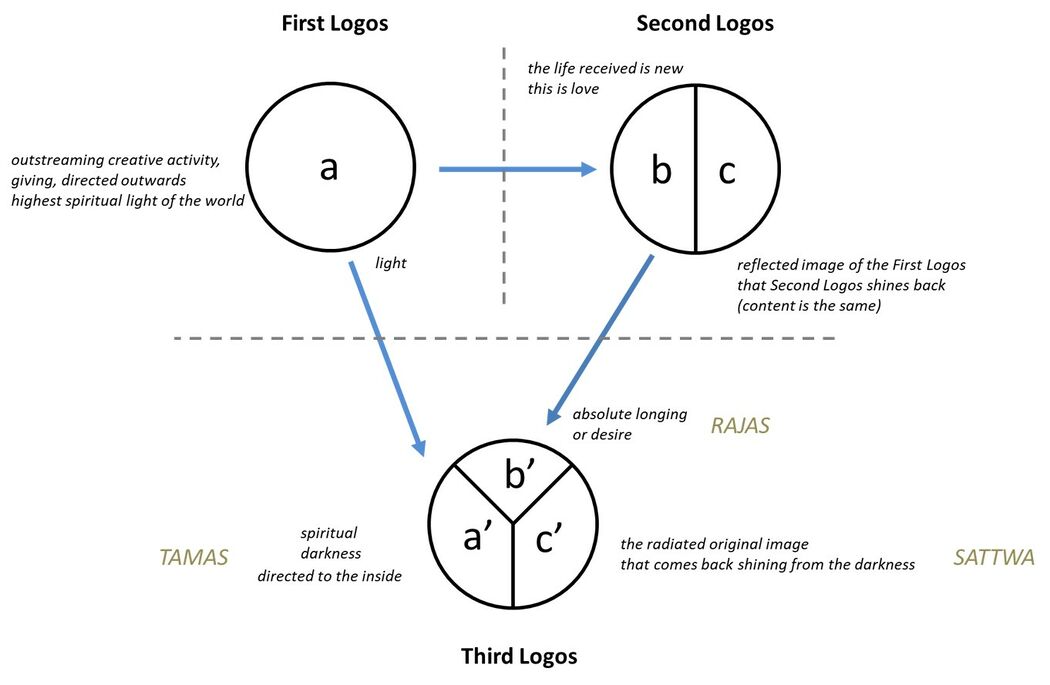Phew... here we go, a perfect coalescence of SS and nonduality. This is a perfect expression of nondual perspective which does not contradict but embraces the structural-evolutionary vision of the Cosmic Organism in SS. I have no doubt that Martinus was describing his first-person spiritual experience here and not just some intellectual knowledge, and that is how we also need to come to the same experiential vision.Federica wrote: ↑Sun Apr 30, 2023 7:34 pmMartinus wrote:All created phenomena are time- and space-dimensional, and cannot therefore be eternal. They must all break down and perish, just as they were once created and built up. As they thus each constitute a created phenomenon, this cannot possibly constitute the living "something" or "I" for which it was a tool. It is not the organism that directs the I, but the I that directs the organism. We have already, in our previous analysis of the universe, seen that this universe constituted an organism and manifestation for a living being or the Godhead. In our own structure and appearance we meet precisely such an analysis of a living being. Here, too, we meet a "something" manifesting or revealing itself through the organism or physical body. As this body in all its details constitutes nothing but a tool through which a "something" can manifest itself, this "something" is thus the real essence of being behind the organism. As this "something" is the same as that which we express as the I, it can in itself have no analysis. If we say it is evil, or if we say it is good, these analyses will only indicate phenomena that the above-mentioned "something" creates through the organism. But the created cannot possibly be identical with the creator. The creator existed before the created and will live when the created no longer exists. The state of eternity that this "something" is in is its analysis. But this analysis can only be nameless and can only be termed "X1". As the above-mentioned "something" has a faculty of creating, this faculty must be just as eternal as this "something" itself, for if there had been a time when it had no faculty of creating how could this faculty have come into existence? It is therefore likewise to be expressed as a nameless "something", which we must then term "X2". But when "X1" and "X2" thus exist eternally, these two X's, just like "X1" and "X2" in the structure of the Godhead, are the source of a reality we must call "X3". Just as "X3" in the Godhead constitutes the eternal result of his manifestation or creation, so too is "X3" in the living beings the result of their manifestation and creation. As these three X's, just like the Godhead, constitute an inseparable unity, which in this case is the same as a living being, the living being is thus absolutely eternal. When the living being is thus an eternal reality, its present existence is not its entire life and appearance. The age that it has now is only the age of its present organism and not the age of its eternal structure itself. The present organism is thus not the only organism that this "something" has used. It must of necessity constitute merely a single link in a chain of organisms or physical bodies that it has had in its preceding eternal existence.
As the above-mentioned "something" can thus create one physical body after another, this, its principle of organism, is likewise eternal or beyond time and space. In this, its eternal state, it constitutes, as previously mentioned, a triune principle in the form of the three X's, just like the Godhead. We thus see here how the terrestrial human being in his eternal structure already appears in "God's image".
Steiner expressed it in a more concise way:
"Thinking must precede ideas" - Rudolf Steiner, The Philosophy of Freedom
And you are right, it does not seem to align with Scott's paradigm, although there may be ways to reconcile them, but I'll leave it for Scott.
That was only a hypothesis, I still cannot connect all the dots there, but it may turn out to be true. My intuition is that there are more and deeper mysteries of the Divine Reality which we do not know yet at our current evolutionary stage. But anyway, I don't see how Martinus views would contradict with the self-causality.This makes me think of Stranger's first post on the forum, last October, about the self-causality of the reality of consciousness. Eugene - I was wondering: How do you relate to that question today - for example when it comes to the sub-question of suffering - with all you have since considered and discussed - would you post it at all today? And if yes, has the standpoint the question was coming from changed in any ways since then?
Martinus wrote:Materialistic research will eventually unite with the great truths hidden within the religious mysticism of the world.
Adi Shankaracharya wrote:"By knowing the self (Atman) as the indwelling Lord of all beings, the wise man sees the same self in all creatures and realizes that all distinctions are false. He sees the one infinite consciousness shining equally in all beings, and thus he attains the supreme bliss of non-dual consciousness."
Martinus wrote:I saw how every limited thing ... revealed infinity and eternity. ... I became identical with what was "absolute" and "everlasting" and I saw all things from this "absoluteness" and "everlastingness". ... And it is this experiencing faculty that I have called "cosmic consciousness". ... I had experienced an "initiation"... Whereas my consciousness before this experience of mine was an expression of "local consciousness", it had now become an expression of "universal consciousness"
Martinus wrote:In the little symbol at the bottom the sun symbolizes the cosmically conscious being and its sensory capacity, which encompasses both the eternal and the created or temporal part of the universe.
